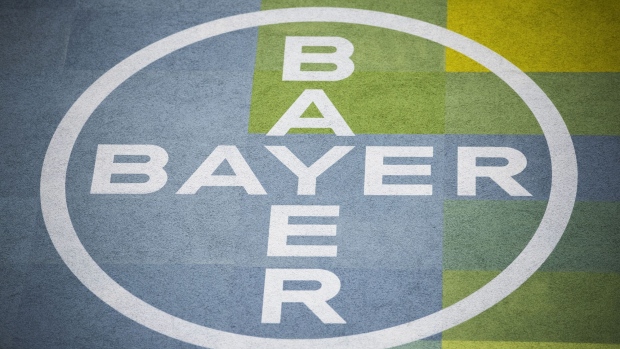Aug 8, 2023
Bayer Lowers Revenue Forecasts for Crops and Drugs Units
, Bloomberg News

(Bloomberg) -- Bayer AG reduced its sales forecasts for its crop science and pharma divisions this year, accounting for the German company’s profit warning last month.
Revenue for the crops unit will probably fall by 5% this year as prices for the weedkiller glyphosate decline, while the pharma unit’s sales will likely stay flat rather than gaining, according to a statement Tuesday.
Bayer is giving more details about the forces driving last month’s cut to its 2023 financial targets. That was one of the first big moves from Chief Executive Officer Bill Anderson, who took over in June and is trying to breathe fresh life into the crisis-rattled company.
The stock fell as much as 1.6% in morning trading.
Bayer previously expected sales to climb 3% at the crops division. However, prices have stayed stubbornly low for glyphosate-based products, including the controversial weedkiller Roundup. That’s battered the herbicides business, especially in North and Latin America.
The bright spot for that division was Bayer’s corn seed and traits business, where sales rose by 11% in the second quarter. That performance helped offset weak demand for soybean, cotton and vegetable seeds.
Bayer’s pharma unit is struggling to compensate for falling sales of Xarelto, its blockbuster blood-thinner that’s encountering generic competition. Higher demand for new cancer drug Nubeqa and new kidney medicine Kerendia helped soften that blow in the second quarter.
Consumer health, Bayer’s smallest division, remains its fastest grower for now. That unit is seeing especially high demand for its Bepanthen skin creams and its allergy and cold products, allowing Bayer to confirm its target for the division’s revenue to grow 5% this year.
Investors are parsing Anderson’s every word for signs of whether he will support Bayer’s conglomerate structure — which combines crop science, pharma and consumer health divisions under one roof — or if he might decide to break up the company.
Predecessor Werner Baumann remained a staunch defender of the current setup after he spent $63 billion in 2018 on crops giant Monsanto, which saddled Bayer with massive legal headaches related to the Roundup.
Anderson has thus far kept a relatively low profile, touring Bayer’s global operations and pledging to reshape the work culture for its 100,000 employees.
(Updates with shares in third paragraph)
©2023 Bloomberg L.P.






